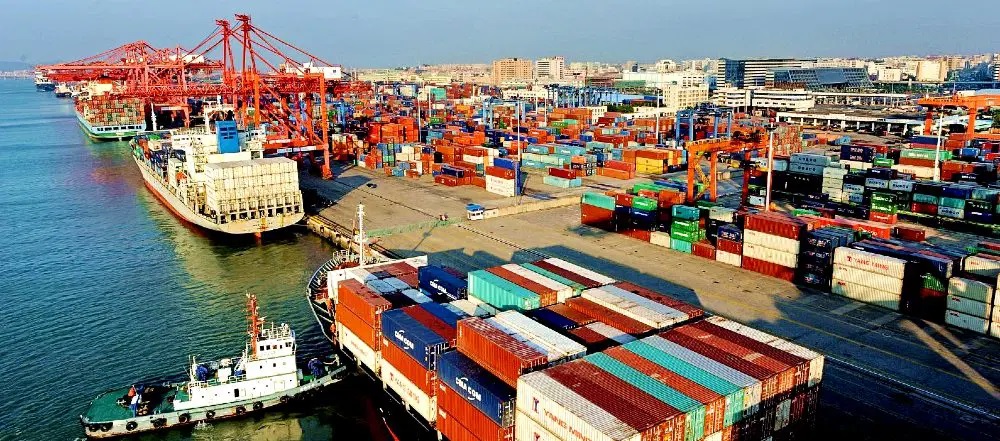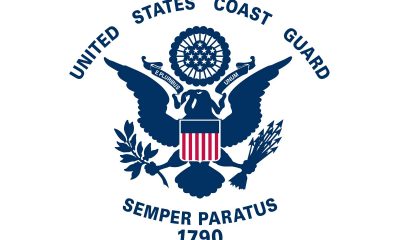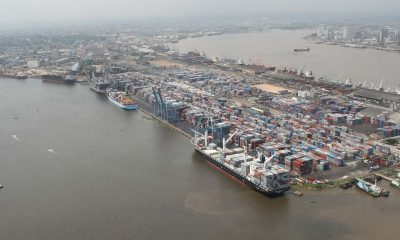Brands/Products
19,833 Vessels Berthed at Nigerian Ports from 2013 to 2016—NBS
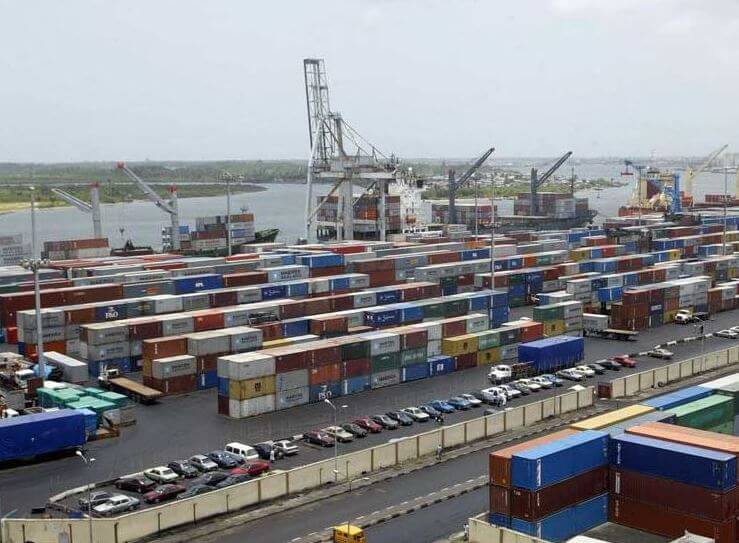
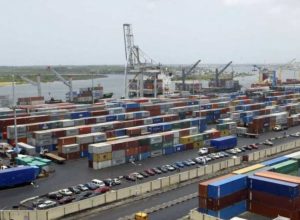
By Modupe Gbadeyanka
A report released on Wednesday, February 8, 2017 by the National Bureau of Statistics (NBS) has revealed that a total of 19,833 vessels berthed at the various ports in the country between 2013 and 2016.
In the report titled ‘Shipping & Port Activities 2013-2016’ and obtained by Business Post, it was also disclosed that the ship traffic statistics at Nigerian ports showed 543,842,425 tonnages were registered within the period under review.
It was stated that the year 2014 recorded the highest number of vessels berthed as well as tonnages registered while the least were recorded in 2016.
Tin Can Island Port handled the most ships accounting for 33 percent of total number of ships that berthed in all ports and 32 percent of total tonnage registered in all ports.
It is closely followed by Apapa port which accounted for 28 percent of ships that berthed and 25 percent of total tonnage registered and Onne port which accounted for 15 percent of ships that berthed and 30 percent of total tonnage registered.
Also, cargo traffic statistics revealed a total of 312,185,808 cargo traffic was recorded at all Nigerian ports between 2013 and 2016.
Furthermore, 196,851,236 or 63 percent of the cargo traffic were inwards while 115, 334572 or 37 percent were outward.
It was also indicated in the report that Apapa port handled the most number of inward cargoes accounting for 39 percent of total inward cargoes and closely followed by Tin Can Island and Delta ports accounting for 31 percent and 11 percent respectively.
Similarly, Calabar port accounted for 4.29 percent to record the least and Onne ports handled the most number of outward cargoes accounting for 80 percent of total outward cargoes and closely followed by Delta and Apapa ports accounting for 10.63 percent and 3.52 percent respectively. Calabar port accounted for 0.05 percent to record the least.
The number of passenger traffic within the period under was put at 52,262 while the highest number of passenger traffic was recorded in 2013.
Business Post learnt that the number of vessels that berthed at the Apapa Port has been dropping gradually from 1,510 in 2013 to 1,097 in 2016 while the Gross Registered Tonnage at the Port Peaked at 37,041,879 in 2014 and dropped to 31,032,377 in 2016.
also, the number of vessels that berthed at the Tin Can Island Port increased from 1,615 in 2013 to 1,774 in 2015 and later dropped in 2016 to 1,414 while the Gross Registered Tonnage at the Port Peaked at 48,435,584 in 2015 and dropped to 40,674,982 in 2016.
In the report also, the number of vessels that berthed at the Delta Port dropped from 609 in 2013 to 433 in 2016 while the Gross Registered Tonnage at the Port also dropped from 8,687,160 in 2013 to 6,177,809 in 2016.
For the Rivers Port, the number of vessels that berthed dropped from 439 in 2013 to 287 in 2016 while the Gross Registered Tonnage at the Port also dropped from 6,761,057 in 2014 to 4,560,844 in 2016.
A look at the Onne port revealed that the number of vessels that berthed declined from 847 in 2014 to 605 in 2016 while the Gross Registered Tonnage at the Port also dropped from 43,916,846 in 2014 to 35,937,547 in 2016 and that of Calabar port recorded a fall from 373 in 2013 to 189 in 2016 while the Gross Registered Tonnage which peaked at 4,087,599 in 2015 dropped to 3,803,199 in 2016.
In summary, the number of vessels that berthed at all the Ports dropped from 5,369 in 2013 to 4,025 in 2016 while the Gross Registered Tonnage dropped from 146,820,488 in 2014 to 122,186,758 in 2016.
Business Post gathered that the total number of passenger traffic at the ports peaked at 12,418 in 2013 and dropped to 2,473 in 2015 and later increased to 12,861 in 2016.
Brands/Products
Investors Inject $9.2m into AI Dating App Ditto for Yacht Blind Dates

By Dipo Olowookere
About 9.2 million funding round has been secured by an AI-dating app, Ditto, for the expansion of its iMessage-based matchmaker, with the participation of Peak XV Partners, Gradient, Scribble Ventures, Alumni Ventures, and Llama Venture.
The iMessage-based matchmaker plans real dates for users, handling everything from the match to logistics, so students can focus on showing up and connecting in real-life. Users grow tired of endless swiping and stalled conversations.
College students swipe endlessly, juggle multiple chats, and still struggle to turn matches into actual dates. Ditto was created to remove that friction entirely.
The business was established by two Berkeley undergraduates, Mr Allen Wang and Mr Eric Liu, who saw friends spend hours on dating apps without forming meaningful connections.
The platform initially launched at UC San Diego and went viral across sorority group chats before quickly expanding to UC Berkeley, USC, UCLA, and UC Davis.
It operates entirely over iMessage, where users already communicate daily. Users tell Ditto their preference for a date, such as ‘a 6 ‘2 hot nerd that brings me flowers’ or ‘an ABG who mastered leetcode’. After sharing their preferences and availability, users receive a text with a complete date plan, including the time, place, and details of their match, all centred around the campus they are near.
After each date, Ditto collects feedback and incorporates these feedbacks into the user’s profile to improve future matches. The result is a system that feels personal, efficient, and low-pressure, while removing much of the anxiety and inefficiency associated with modern dating apps.
“Our goal was to build something that actually helps people go on dates, not stay stuck in an app. When you remove swiping and chatting, you remove a lot of the toxicity and anxiety that people associate with online dating.
“We plan the date, people show up, and real connections have a chance to form. About 20 per cent of our matches turned into actual dates,” Mr Wang stated.
With this funding, Ditto is kicking off 2026 by hosting 10 yacht parties across the US, starting in Los Angeles on Valentine’s Day.
Each yacht will host 100 college singles, matched into 50 couples. This will be the biggest yacht party in college history. Ditto is co-hosting these parties with the hottest school clubs and Greek life organisations in Los Angeles, New York, Boston, and more.
A Partner at Gradient, Vig Sachidananda, while commenting on the new funding package, said, “Ditto is leveraging AI in a creative way to build a novel online dating experience — one which resembles a true matchmaking service.
“We’ve seen a great early response from users to this approach, and we’re excited to continue to work with Ditto as they expand to college campuses across the US.”
Since launching, Ditto has grown to more than 42,000 users across four college campuses, with over 25 per cent of users coming through referrals.
Looking ahead, Ditto plans to expand beyond college campuses and eventually support other forms of connection, including professional networking and group social experiences. The long-term vision is to become a matchmaker for modern life, helping people turn intent into meaningful, real-world interactions, one plan at a time.
Brands/Products
Odekina Leaves UBA for AEDC to Head Corporate Communications Department

By Aduragbemi Omiyale
One of the foremost Public Relations practitioners in Nigeria, Mr Omede Odekina, has joined the Abuja Electric Distribution Company (AEDC).
He is now on the payroll of the energy firm as the Head of Brand Marketing and Corporate Communications Department after leaving the United Bank for Africa (UBA) Plc.
The Kogi State University graduate will use his experience as a media relations expert to sell the image of the electricity organization.
In an announcement via his LinkedIn page, Mr Odekina described his movement from the banking space to the energy industry as the “beginning of an exciting new chapter and a unique opportunity to help shape how one of Nigeria’s most critical service organisations engages with its customers and communities.”
He thanked UBA for providing him with the platform to grow his career, describing the lender as “truly one of the best places to work.”
According to him, “UBA was more than a workplace; it was a family. The culture, leadership, and people created an environment of excellence, trust, and continuous growth. I leave deeply appreciative of the journey, the friendships, and the values that will remain with me always.”
The Associate of the Nigerian Institute of Public Relations (NIPR) disclosed that in his new role, “my focus is firmly on positioning Abuja Electricity Distribution Plc as Nigeria’s number one electricity distribution company, one that delivers reliable service with professionalism, respect, transparency, and a strong sense of community partnership.”
“It is a responsibility I embrace with enthusiasm, purpose, and optimism for what lies ahead,” he said further.
Brands/Products
Reputation Economy: How Nigerian Brands Won and Lost Public Trust in 2025

Nigeria’s leading independent media intelligence consultancy, P+ Measurement Services, has released its 2025 Industry Media Reputation Report, revealing that corporate reputation has emerged as one of the most decisive assets for Nigerian companies, rivaling financial performance and market share in shaping public trust.
The report analysed and audited thousands of print and online news reports published in 2025 across the banking, insurance, telecommunications, and e-hailing sectors. In total, coverage of 29 commercial banks, 13 insurance companies, five e-hailing platforms, and four telecommunications operators was examined to determine how corporate actions translated into public perception.
According to the findings, rising operational costs, currency pressures, regulatory scrutiny, labour relations, and service reliability now directly influence how brands are judged in the media and by stakeholders.
“Reputation is no longer a soft outcome of publicity. It is a measurable business asset shaped by corporate behaviour, governance quality, customer experience, and crisis response,” said a Senior Analyst at P+ Measurement Services, Ms Tumininu Balogun.
She added, “For more than a decade, we have been at the forefront of media intelligence in Nigeria. Our commitment to the PR and communications industry is to ensure that reliable media data and actionable insight are always available, so professionals can move beyond intuition and make truly data-driven decisions.”
E-Hailing Industry: Driver Relations Reshaped Corporate Reputation
The e-hailing sector recorded one of the clearest shifts in reputation dynamics in 2025, driven largely by labour policies and platform economics.
inDrive Nigeria led the sector with 39% of positive reputation share, following extensive media coverage of its decision to reduce driver commission to 0.1% during peak hours in Abuja. Bolt Nigeria followed with 32%, supported by reports on its electric tricycle deployment in Lagos. LagRide recorded 17%, driven by coverage of its electric vehicle infrastructure partnership, while Uber Nigeria accounted for 11% and Rida 1%.
On the negative reputation scale, Bolt recorded the highest share at 40%, linked to driver protests following fare reduction policies. Uber accounted for 29%, inDrive 20%, LagRide 8%, and Rida 3%, largely associated with reports on strike threats, platform reliability concerns, and driver earnings disputes.
The report notes that how platforms treat drivers has become as influential to reputation as rider experience.
Banking Industry: Profitability Confronted by Governance Risk
Among commercial banks, Stanbic IBTC recorded the strongest positive reputation position at 26%, driven by recognition as KPMG’s top retail bank. Zenith Bank followed with 22%, supported by dividend payout coverage. Fidelity Bank (19%), UBA (17%), and FirstBank (16%) gained positive reputation visibility through education initiatives, digital service upgrades, and branch automation projects.
However, reputational exposure remained significant. GTCO recorded the highest negative reputation share at 28%, followed by FirstBank at 26%, FCMB at 18%, and both UBA and Ecobank at 14%, mainly due to media reports concerning legal disputes, fraud investigations, and customer-related controversies.
The report highlights that in the banking sector, strong earnings and digital innovation strengthen reputation, but governance failures can rapidly undermine it.
Insurance Industry: Financial Stability and Data Protection Define Trust
In the insurance sector, AXA Mansard led positive reputation share with 36%, followed by Leadway Assurance (29%), AIICO (16%), NEM Insurance (11%), and SanlamAllianz (8%).
AXA Mansard also accounted for the highest negative reputation exposure at 68%, driven by reports of a significant decline in pre-tax profit. AIICO recorded 18%, Leadway 12%, and NEM 2%, largely connected to regulatory matters and data protection concerns, including coverage of customer data breaches.
The findings indicate that insurers are now judged as much by financial resilience and cybersecurity posture as by product offerings.
Telecommunications Industry: Infrastructure Investment Meets Rising Public Expectations
MTN Nigeria led positive reputation share with 47%, driven by infrastructure expansion narratives and innovation campaigns. Glo followed with 28%, Airtel Nigeria with 16%, and T2 (formerly 9mobile) with 9%, largely supported by its rebranding coverage.
On the negative reputation side, MTN recorded 44%, T2 31%, Glo 13%, and Airtel 12%, influenced by reports on service quality challenges and the Nigeria Labour Congress boycott directive targeting telecommunications operators.
The sector’s results suggest that while capital investment enhances visibility, network reliability and customer experience increasingly determine long-term reputation.
Reputation Has Become a Strategic Business Asset
Across all four industries, the report finds a consistent pattern: reputation in 2025 closely followed corporate behaviour.
Brands that demonstrated transparency, operational fairness, financial discipline, digital reliability, and customer focus were more likely to build positive public trust. Companies facing labour unrest, legal disputes, regulatory sanctions, data breaches, or service disruptions saw these issues rapidly reflected in their reputation profile.
For brand owners, investors, regulators, and communication professionals, the implication is clear: reputation is no longer managed only through messaging, but through measurable actions that are permanently recorded in the media ecosystem and searchable online.
-

 Feature/OPED6 years ago
Feature/OPED6 years agoDavos was Different this year
-
Travel/Tourism9 years ago
Lagos Seals Western Lodge Hotel In Ikorodu
-

 Showbiz3 years ago
Showbiz3 years agoEstranged Lover Releases Videos of Empress Njamah Bathing
-

 Banking8 years ago
Banking8 years agoSort Codes of GTBank Branches in Nigeria
-

 Economy3 years ago
Economy3 years agoSubsidy Removal: CNG at N130 Per Litre Cheaper Than Petrol—IPMAN
-

 Banking3 years ago
Banking3 years agoSort Codes of UBA Branches in Nigeria
-

 Banking3 years ago
Banking3 years agoFirst Bank Announces Planned Downtime
-

 Sports3 years ago
Sports3 years agoHighest Paid Nigerian Footballer – How Much Do Nigerian Footballers Earn


